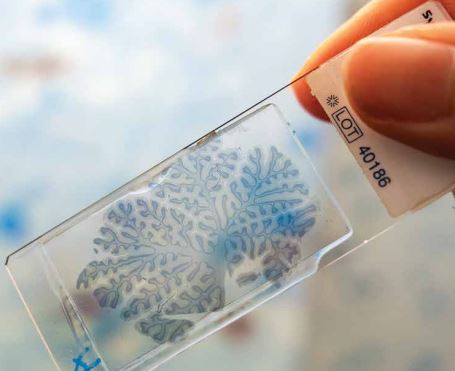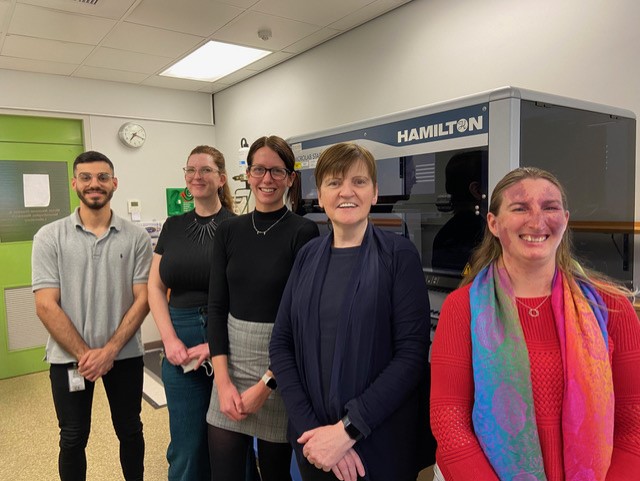
FHMRI researcher Associate Professor Mary-Louise Rogers has received a further $490,000 in valuable funding from leading Australian funding organisation FightMND.
FightMND's vision is a world without motor neurone disease (or ALS), and is the largest independent funder of MND/ALS research in Australia.
The latest round of $13.4 million in funding includes a Collaborative Initiative grant to the MND and Neurotrophic Research (MND&NR) Lab at Flinders University.
Associate Professor Rogers' team is working on a biomarker 'fingerprint' for MND to fast-track diagnosis and identify causes of the disease and will now will work with preModi Initiatives in Germany (led by Professor Paul Lingor of the Technical University of Munich) and Professor Anna King of the Wicking Institute (University of Tasmania).

Flinders lab leader and Principal Research Fellow Associate Professor Rogers says the project utilises the Ian Davis Flinders University Biomarker Facility (pictured), named in honour of the late co-founder of FightMND, Dr Ian Davis OAM.
"This is an exciting opportunity to work collaboratively with MND researchers in Europe and Australia to, for the first time, identify an 'early signature or fingerprint' of MND," she says.
Biomarkers are molecules that detect or confirm the presence of a specific disease. There are currently no biomarkers specific to MND in clinical use, which can delay diagnosis in patients by more than 12 months.
This innovative collaboration aims to overcome this barrier by expanding the Flinders University research into developing a signature of early MND by measuring specific markers in body fluid including urine, blood and brain fluids.
"Our large collaborative project may uncover a biomarker signature that increases the efficiency of future clinical trials by enabling earlier diagnosis, and thus a longer window where therapy can be effective," says Associate Professor Rogers.
"For pre-familial MND, an early fingerprint also provides a decision tool for an earlier start of effective therapy than available."
Fight MND Collaborative Initiative projects aim to establish new or expand on existing MND research programs, platforms and initiatives that enable researchers to collect, share and analyse data and drive collaboration with a range of stakeholders to deliver patient-focused initiatives.
FightMND's 2023 grant round opened on November 3, 2022 with funding opportunities for both national and international researchers through a number of research schemes.






